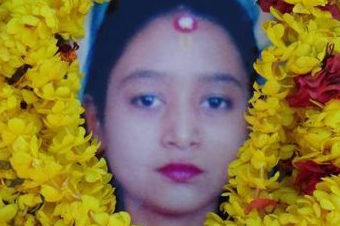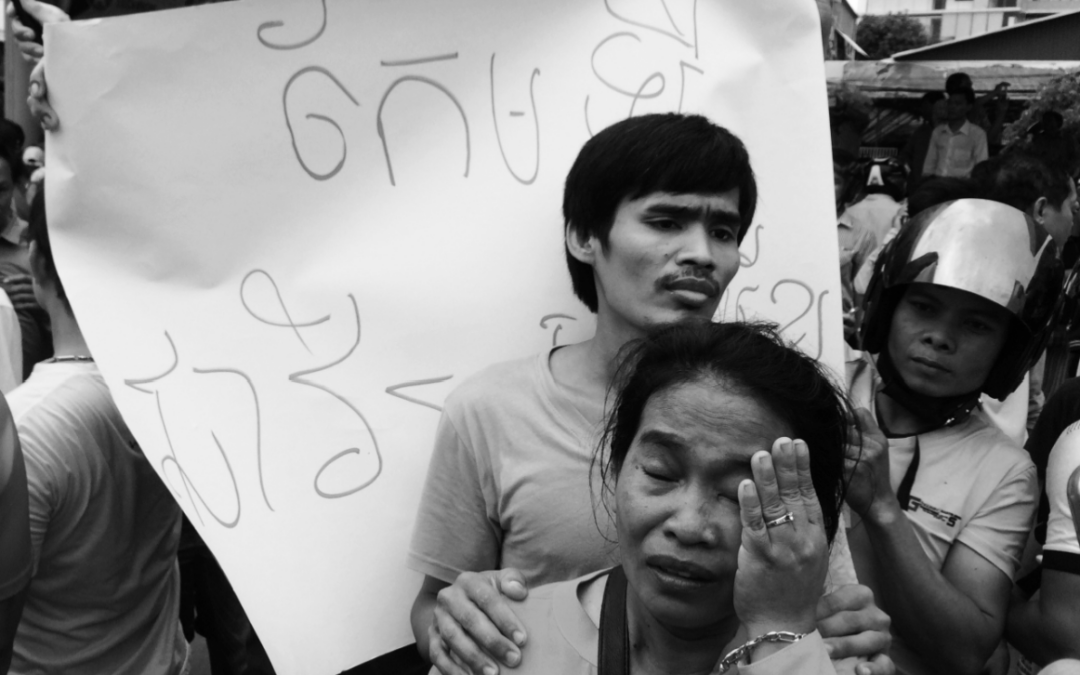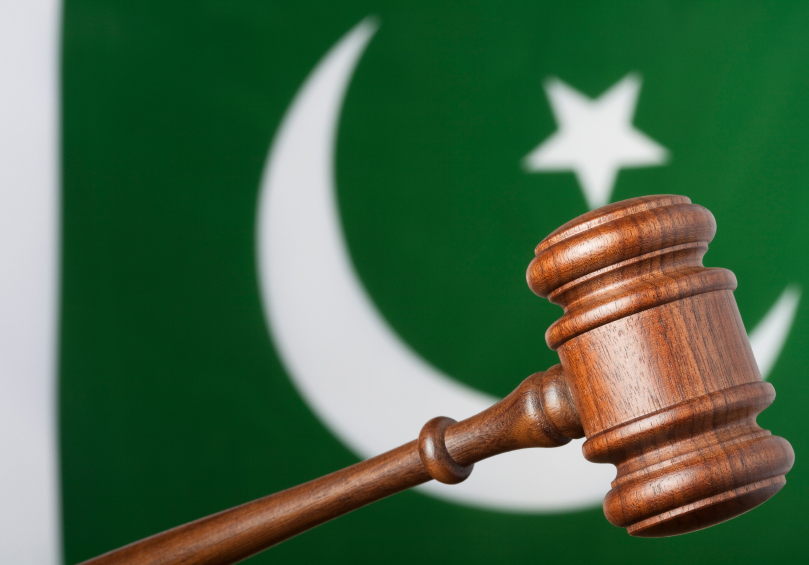
Apr 20, 2017 | News
Nepali authorities should immediately take effective steps to enforce the landmark Kavre district court murder verdict for the 2004 torture and killing of teenage Maina Sunuwar, the ICJ, Amnesty International, and Human Rights Watch said today.
On 16 April 2017, the Kavre district court sentenced three army officers to life imprisonment for the murder of Maina Sunuwar, a 15-year-old girl (photo) who was tortured in army custody and died as a result in February 2004.
Maina’s killing took place during the decade-long armed conflict between the Maoists and government forces that ended in 2006.
A court martial in 2005 found that Maina had died in army custody, convicted the three officers of torture and murder, but only sentenced the three perpetrators to six months’ imprisonment for minor offences, and promptly released them on grounds that they had already served the six months while confined to army barracks during the period of investigation.
“These convictions are an important development in Nepal’s slow-paced justice system’s ability to deal with grave conflict-era human rights abuses,” said Sam Zarifi, the ICJ’s Secretary General.
“What we need now is for the government to demonstrate its commitment to the rule of law and enforce them,” he added.
The trial before the Kavre district court took place in the absence of any of the four accused, despite repeated court summonses, including an arrest warrant, to notify them of the charges and compel them to appear in court.
The three accused army officers who were convicted of Maina Sunuwar’s murder, Bobi Khatri, Amit Pun and Sunil Adhikari, are no longer in the army and are believed to have fled abroad after the court martial proceedings.
The fourth accused, who was acquitted, Major Niranjan Basnet, is still in the army and was repatriated to Nepal from a UN peacekeeping assignment in Chad in 2009 due to the indictment against him.
Maina Sunuwar’s case has become emblematic of the shortcomings in Nepal’s justice system that have repeatedly frustrated efforts of Nepali conflict victims to secure justice for wartime abuses.
Maina Sunuwar’s mother first filed a report with the police in November 2005.
Since then, there have been numerous procedural and political hurdles, and a lack of cooperation by the military as it sought to protect its own.
An arrest warrant issued in 2008 was never enforced by Nepali authorities, with the police telling the court they were unable to trace them.
“Maina Sunuwar’s case was a true test case for the Nepal criminal justice system, but the government has a habit of simply ignoring court orders,” said Brad Adams, Asia director of Human Rights Watch. “This is the first sign of hope for victims after more than ten years since the end of the conflict—and now we need to see all those convicted of murder behind bars.”
The human rights organizations expressed concern that the government might refuse to seek to take measures to enforce the Kavre court’s verdict given its prior record on this and thousands of other conflict-era cases.
In a disturbing example, the police have yet to implement a 13 April 2017 Supreme Court order to arrest Bal Krishna Dhungel, a Maoist politician convicted of a 1998 murder.
Dhungel has yet to serve out his life sentence handed down by the courts.
The court gave the police a week to execute its order and present Dhungel before it.
“The Kavre district court has done its job, reaffirming the independence of the judiciary from political and military pressure, and holding perpetrators of serious crimes committed during the conflict to account,” said Biraj Patnaik, Amnesty International South Asia Regional Office Director. “Now the authorities must do their job by breaking with the practice of successive past governments that ignore and undermine the courts’ decisions. We expect the government to promptly implement this week’s ruling.”
Contact
Nikhil Narayan, ICJ’s South Asia Senior International Legal Adviser, e: Nikhil.narayan@icj.org
Sam Zarifi, ICJ’s Secretery General, e: sam.zarifi@icj.org

Mar 23, 2017 | News
Cambodia should continue to investigate the killing of prominent political commentator Kem Ley in order to address key aspects of the case that appear to have been inadequately investigated, said the ICJ, Amnesty International, and Human Rights Watch today.
On 23 March 2017, the Phnom Penh Municipal Court found Oeuth Ang guilty of the premeditated murder of Kem Ley on 10 July 2016 and sentenced him to life imprisonment.
Prior to the half-day trial, which took place on 1 March 2017, the authorities released almost no information about the investigation.
“The trial revealed that the investigation appeared to be deficient in several important respects,” said Kingsley Abbott, the ICJ Senior International Legal Adviser who observed the trial.
“Until there is an independent, impartial and effective investigation to establish whether anyone else was involved in the killing, the victims of this serious crime, including Kem Ley’s wife and children, will be unable to obtain justice,” he added.
Even the very identity of the defendant was at issue. At trial, Oeuth Ang maintained he is 39-years-old, unmarried, and named “Chuob Samlab” – which translates in English as “Meet to Kill” – from Banteay Meanchey province.
However, the prosecutor submitted that based on the fingerprint on the ID card of Oeuth Ang, he is satisfied that the defendant is in fact Oeuth Ang, married, born in 1972, from Siem Reap province.
“The proceedings may have established that Oeuth Ang pulled the trigger, but the investigation does not seem to have considered whether someone else loaded the gun,” said Champa Patel, the Amnesty International Director for Southeast Asia and the Pacific. “It is clear that the authorities want to close the book on this case and move on but failures in the investigation of this heinous act can only serve to compound the injustice already suffered by the family of Kem Ley”.
The hearing commenced at 8:40 and concluded at 13:00. After Oeuth Ang gave evidence, ten witnesses gave oral testimony including two Caltex workers, seven officials who were involved in the investigation in different capacities, and a doctor who examined Kem Ley’s body at the scene of death.
Official reports and the statements of several witnesses were also read into evidence, and the prosecution played eight videos from different locations, including one captured by a closed circuit television (CCTV) camera inside the Caltex station where Kem Ley was killed.
Kem Ley’s widow, who was named as a civil party, did not appear at the trial but her civil party statement was read into evidence.
“The authorities’ failure to investigate so many clear gaps in the defendant’s story and the court’s unwillingness to examine them suggest that a quick conviction rather than uncovering all involved was the main concern,” said Phil Robertson, Deputy Asia Director at Human Rights Watch. “Kem Ley’s family have been outspoken in their disbelief that Oeuth Ang was solely responsible for the murder, and the trial’s conduct lends credence to their skepticism.”
Contact
Kingsley Abbott, ICJ Senior International Legal Adviser for Southeast Asia, t: +66 94 470 1345 ; email: kingsley.abbott(a)icj.org
Cambodia-KemLey Verdict-News-Press releases-2017-ENG (full story, in PDF)

Mar 14, 2017 | News
The ICJ urged the Pakistan government to withdraw its proposal to reinstate and widen the scope of military trials for civilians.
“Bringing back military courts is an attempt to deflect attention from the real issue: the Government’s failure to enact reforms to strengthen the criminal justice system during the two years the 2015-2017 military courts were in operation,” said Sam Zarifi, ICJ’s Asia Director.
Bills to amend the Constitution of Pakistan and the Army Act, 1952, to extend the jurisdiction of military courts to try a wide variety of terrorism-related offences, were introduced before the National Assembly (lower house of parliament) on Friday, 10 March.
The “terrorism-related” offences include, among others: abducting any person for ransom; raising arms of waging war against Pakistan; causing any person injury of death; using or designing vehicles for terrorist attacks; creating terror or insecurity in Pakistan; and attempting, aiding or abetting any of these acts.
The new amendments are also applicable in all cases where the accused commit “grave and violent acts against the State”. The mandatory requirement to belong to a group that uses “the name of religion or sect”, as introduced by the 21st Amendment and corresponding amendments to the Army Act introduced in 2015, is no longer applicable.
“The expansion of military courts’ jurisdiction over all ‘grave and violent acts against the State’ creates the possibility that these courts could be used against a wide variety of people, including those who are legitimately exercising their rights to speech, association, and assembly,” added Zarifi.
According to the preambles of the bills, an “extraordinary situation” and a “grave and unprecedented threat to the integrity of Pakistan” still exist in the country, and military courts are being revived because they “yielded positive results in combatting terrorism” in the two years they were in operation.
“The military courts have not had any positive results in combating terrorism, given the country’s ongoing problem with acts of terrorism and armed insurgents,” said Zarifi. “Instead, military trials of civilians have further eroded the rule of law and weakened the government’s legitimacy in providing justice and defending the rights of people in Pakistan.”
Background
Military courts constituted under the 21st Amendment convicted 274 people in the two years during which they were in operation, from 7 January 2015 to 6 January 2017. Of those 274 convictions, 161 people were sentenced to death and 113 people were given prison sentences. At least 17 people given death sentences have been executed by hanging. The enabling legislation for these courts lapsed on 6 January 2017 pursuant to a two-year sunset clause.
The ICJ recalled that the use of military courts to try civilians is inconsistent with international standards.
The ICJ has documented serious fair trials violations in the operation of military courts including: denial of the right to counsel of choice; failure to disclose the charges against the accused; denial of a public hearing; failure to give convicts copies of a judgment with evidence and reasons for the verdict; and a very high number of convictions based on “confessions” without adequate safeguards against torture and ill treatment.
Contacts
Sam Zarifi, ICJ Asia Pacific Regional Director (Bangkok), t: +66 807819002; e: sam.zarifi(a)icj.org
Reema Omer, ICJ International Legal Adviser for Pakistan (London), t: +447889565691; e: reema.omer(a)icj.org

Dec 5, 2016 | News
A joint statement calls on members of the House of Representatives of the Philippines to stop further attempts to reintroduce the death penalty and to block any legislation that subverts human rights.
On 29 November 2016, the Sub-Committee on Judicial Reforms of the House Committee of Justice approved a bill restoring the death penalty in the Philippines by railroading the proceedings in the committee and ignoring important questions from other lawmakers questioning the need for the legislation or its urgent passage.
The full statement can be downloaded here:
philippines-joint-statement-death-penalty-news-web-story-2016-eng (PDF)

Nov 29, 2016 | News
The Philippines House of Representatives must immediately cease efforts to rush through legislation restoring the death penalty, the International Commission of Jurists (ICJ) said today.
On 29 November 2016, the Sub-Committee on Judicial Reform, which is chaired by Congressman Marcelino “Ching” Veloso, hastened the passage of a bill restoring the death penalty in the Philippines.
According to reports received by the ICJ, ex-officio members of the Sub-Committee on Judicial Reform railroaded the proceedings and ignored important questions from other lawmakers questioning the need for the legislation or its urgent passage. The Sub-Committee did not present any report, as is the normal practice, on the discussions and information presented in the previous hearings.
“Filipino lawmakers seem intent on embracing the barbaric practice of executions purely as a political measure, without any understanding or even proper discussion of the death penalty’s impact or what their actions would mean to the international obligations of the Philippines,” said Emerlynne Gil, ICJ’s Senior International Legal Adviser for Southeast Asia.
A representative of the ICJ spoke at the hearing of the Sub-Committee on 22 November 2016, and brought to the lawmakers’ attention the country’s obligations under the 2nd Optional Protocol to the International Covenant on Civil and Political Rights (ICCPR) and the general prohibition on reintroduction of capital punishment once abolished, which commit the country not to execute anyone within its jurisdiction.
“There are already thousands of alleged cases of extrajudicial killings in the country. This bill, if it becomes law, will unquestionably usher the Philippines into a dark period where respect for the right to life is comprehensively degraded,” Gil emphasized.
The ICJ has previously written to President Rodrigo Duterte underscoring that the evidence shows that death penalty is not effective at deterring crime at a greater rate than alternative forms of punishment. Investing in improved detection and investigation techniques and capacity, and improving the effectiveness and efficiency of the justice system, is more likely to achieve real results in reducing crime.
The ICJ categorically opposes the death penalty and considers its use to be a violation of the right to life and freedom from cruel, inhuman, or degrading punishment.
The UN General Assembly has repeatedly adopted resolutions by overwhelming majorities, calling on all retentionist States to impose a moratorium with a view to abolition.
Contact:
Ms. Emerlynne Gil, ICJ’s Senior International Legal Adviser
Telephone: +66 840923575
Email: emerlynne.gil(a)icj.org









